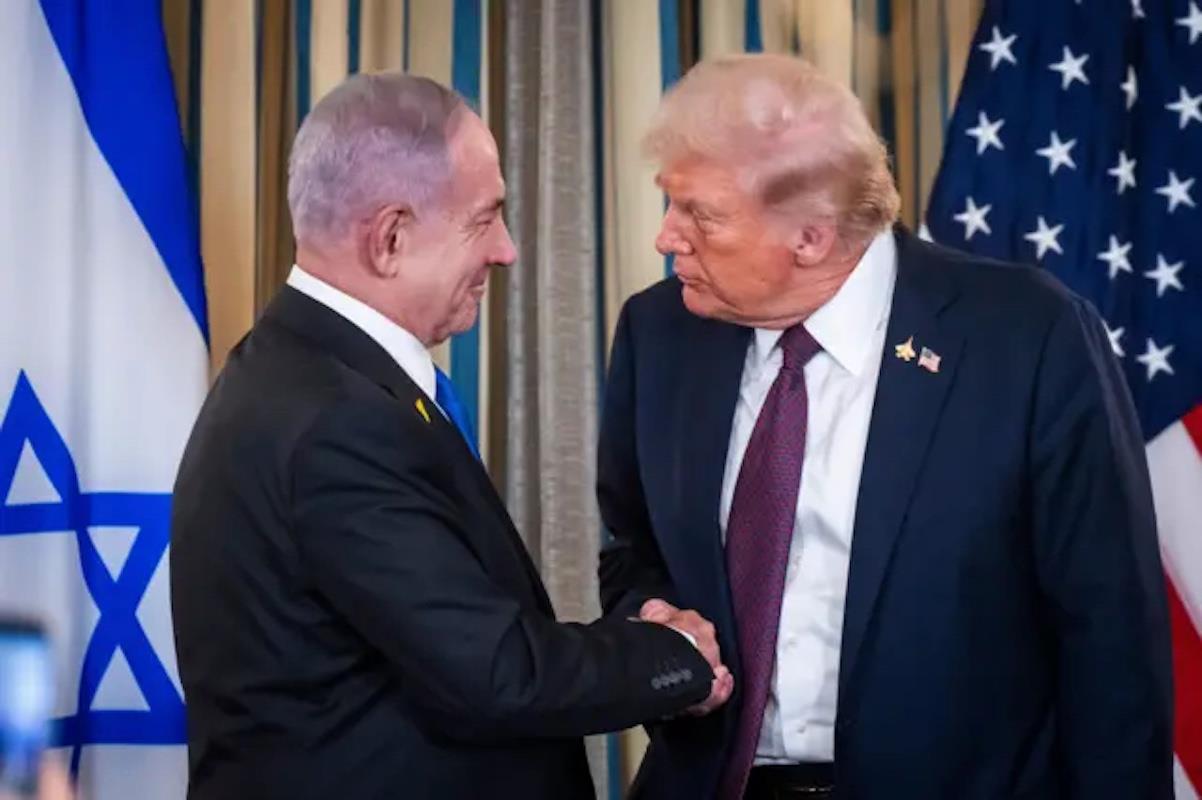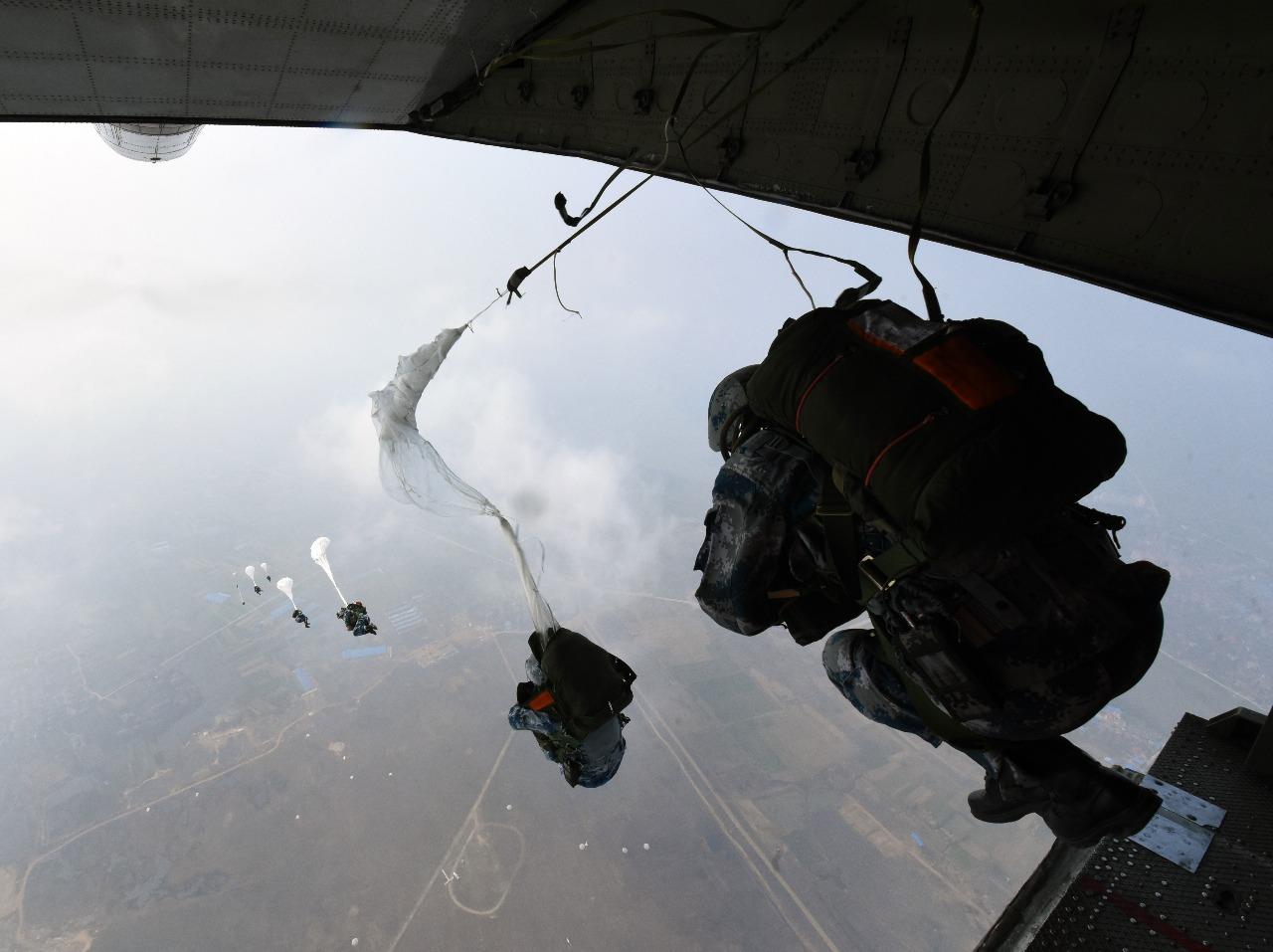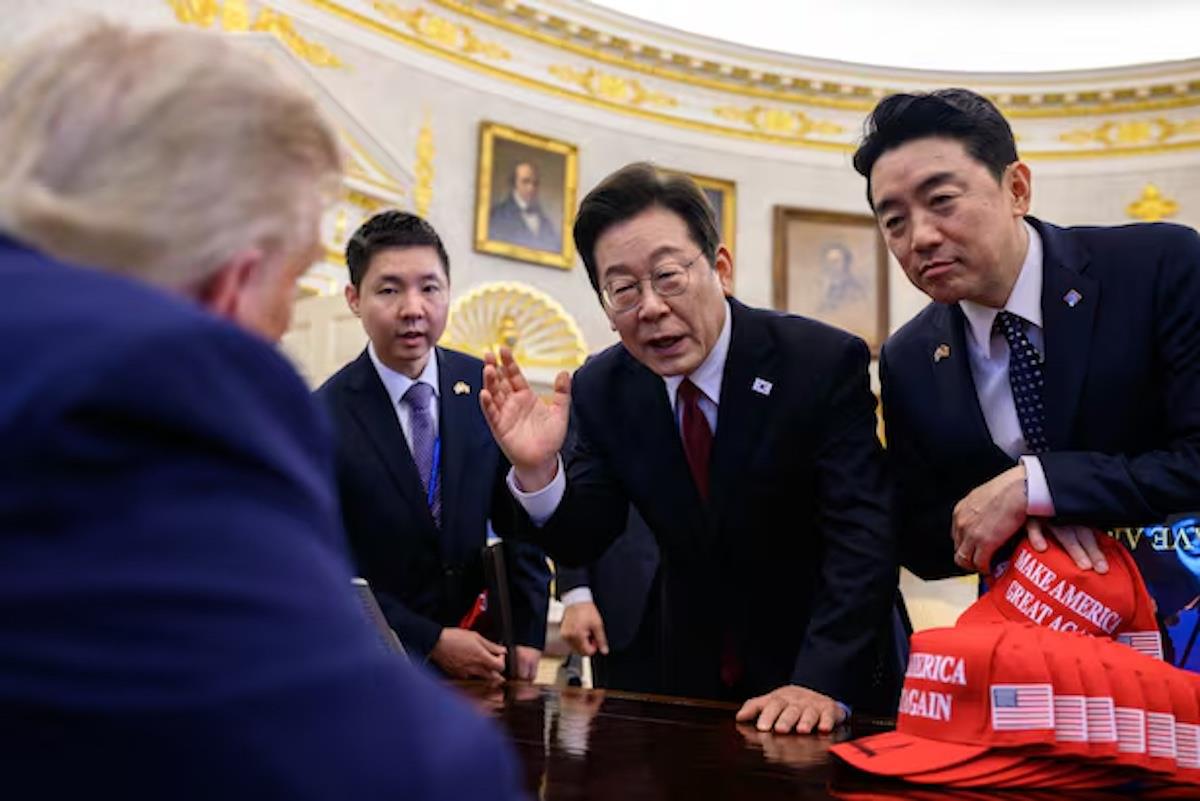Trump's Big, Costly, Coercive Trade Deals Falling Apart In Asia
Yet Donald Trump's tariff gamble on South Korea - including a US$350 billion“signing bonus” - has the battle-tested Krueger, who has also seen her share of financial crises, literally shaking her head with a mix of confusion and disgust.
“Korea is going to be hurt if all of this happens,” she said in an interview in Seoul.“Other countries will be harmed, but not as much as the US will harm itself.”
Korean President Lee Jae-myung's thoughts have arrived at a similar place. As he told Reuters, Trump's ask - equivalent to more than 18% of Korea's gross domestic product - will push the economy to the brink of near collapse if fulfilled.
“Without a currency swap, if we were to withdraw $350 billion in the manner that the US is demanding and to invest this all in cash in the US, South Korea would face a situation as it had in the 1997 financial crisis ,” Lee said.
Over the weekend, Korea's National Security Adviser Wi Sung-lac left no doubt that Seoul has decided that forking over 70% of this year's national budget and the equivalent of 80% of foreign exchange reserves to Trump immediately is simply not feasible.
“Our position is not a negotiating tactic,” he told Channel A News.“It's objectively and realistically not a level we are able to handle. We are not able to pay $350 billion in cash.”
Japan is having its own second thoughts. Over the weekend, lawmaker Sanae Takaichi, one of the two frontrunners to replace Shigeru Ishiba, signaled that a renegotiation of the US tariff deal - which includes a $550 billion payment - might be in order.
“We must stand our ground if anything unfair that is not in Japan's interests comes to light in the process of implementing the deal,” Takaichi said on local television about the hundreds of billions of dollars Trump World is demanding from Tokyo.“That includes a potential renegotiation.”
This will all surely enrage the eruptible Trump. Yet even the best-case scenario for Japan could provoke a strong White House response. On Wednesday (October 1), Japan's top trade negotiator, Ryosei Akazawa, insisted that the yen will be just fine if the $550 billion fund materializes.
“We will operate with caution to make sure that the yen doesn't weaken, causing a rise in import prices for Japan,” he said.“We'd calculated that $550 billion is a scale where we can operate without impacting foreign exchange.”
Yet he also made clear that Trump's demand for immediate cash is a non-starter. Tokyo would finance the package through a combination of investments, loans and loan guarantees over several years via government-linked organizations. Such entities are notoriously cautious, slow and bureaucratic – and thus sure to raise Trump's hackles.
Latest stories
Trump's Gaza peace plan could revive Pax Americana

Russia quietly arming China's paratroopers for Taiwan fight Typhon in Japan changes the game - and China knows it
As Japan feels deal-striker's remorse, it's hard not to see Trump's trade negotiations as a crisis in slow motion. It's not just Asia that's in a whirl about Trump's bizarre demands for a“signing bonus” in exchange for lower tariffs – the European Union is, too.
The price for the EU's 15% tariffs: an unthinkable $1.35 trillion through 2028, including $750 billion in US energy purchases and $600 billion in fresh European investment in the US.
The headline figure is“completely unrealistic,” says gas expert Laura Page, a senior analyst at the Kpler commodities firm.“The numbers are just beyond wild.”
True, the EU has been increasing liquefied natural gas (LNG) purchases from the US following supply cutoffs since Russia's invasion of Ukraine in 2022.
Following the US-EU tariff deal , European Commission President Ursula von der Leyen said:“Purchases of US energy products will diversify our sources of supply and contribute to Europe's energy security.”
The arrangement, von der Leyen added, will accelerate efforts to“replace Russian gas and oil with significant purchases of US LNG, oil and nuclear fuels.” EU trade chief Maros Sefcovic said,“We are ready to go for those purchases. We believe these numbers are achievable.”
Yet few others think the numbers are doable. As analyst Page argues, that's“just never going to happen.” Page's Kpler colleague Homayoun Falakshahi adds,“it really is a fantasy.”
Yet for South Korea, things are becoming somewhat existential in the Trump 2.0 era. As economist Krueger explained in Seoul, the thrust of Trump's trade policy is“particularly puzzling for several reasons.”
“First, the claim was that trade was 'unfair' when the US has a trade deficit with a country, and that tariff increases will reduce the deficits. Yet, more foreign investment in the US would result in a larger current account deficit, all else equal,” she said.
Second, Krueger said,“the question arises as to how the focus of the investments would be determined. Would any investment by a private company in the EU, for example, count toward the EU goal?
“Or would the US administration anticipate some control over the composition of the investment across industries? Would purchase, for example, of farmland, count? Would purchases of equity in American companies constitute part of the additional investment?”
If investments are instead to be forthcoming from the private sector, still more questions arise, Krueger explained.“Will governments of foreign countries, committing to an investment level, persuade or provide incentives for those investments to their companies?”
As Krueger noted, it would be a mistake to downplay the shock Koreans felt over the recent mass detention of more than 300 Korean workers at a joint Hyundai Motor-LG Energy Solution battery plant in the US state of Georgia.
“In the short term, we will not see much investment, which is one reason why tariffs are more likely to pull down the rate of growth of production than to push it up,” she said.“In that sense, tariffs are likely to be regressive.”
Krueger's conclusion:“If the US continues on its current policies, I have no doubt that we will talk about the American Century, roughly from 1925 to 2025. After that, it will be somebody else's – whether Asia, Europe or elsewhere – and whose it will be is up for grabs.”
Georgetown University's Victor Cha, also speaking in Seoul, said that the last few months prove that“the international system is in a state of disorder.”
The Western rules-based international order is not being displaced by a new order led by China and Russia. It's falling into disorder due to: 1) two wars, in Europe and the Middle East; 2) great power competition between the US and China; 3) the growing confidence of autocratic states; and 4) the weaponization of economic interdependence and trade.
“For US allies and partners in Asia and Europe, the additional variable creating disorder is the increasing unpredictability of the United States,” Cha explained.
“They are witnessing a paradigm shift in US policies. 'America First' policies no longer value alliances as intrinsic goods and power assets for the US. Rather, alliances are viewed as expensive obligations and power liabilities that exploit US generosity. The US presses instead for transactional deals without much thought given to the deeper investments in these relationships.”
The breakdown of such norms has geopolitical heads spinning in Seoul and Tokyo. Part of the strategy involves slow-walking the transfer of hundreds of billions of dollars to Trump in hopes the US Supreme Court will rule the White House's tariffs violate the US Constitution. Officials in both capitals understand that, if given, clawing that money back from Trump World would be a fool's errand.
Lower courts have already ruled Trump's trade war out of bounds.“If this ruling is upheld, refunds of existing tariffs are on the table, which could cause a surge in Treasury issuance and yields,” said Ed Mills, a Washington policy analyst at Raymond James, a financial services company.

Sign up for one of our free newsletters
-
The Daily Report
Start your day right with Asia Times' top stories
AT Weekly Report
A weekly roundup of Asia Times' most-read stories
The uncertainty factor has companies in a state of confusion.“On a more intermediate-term basis, we think corporate uncertainty around tariffs will remain elevated, though lower than late spring levels,” says RBC strategist Lori Calvasina.
Another question is whether Trump would opt to ignore a Supreme Court ruling.“Trump will surely double down by tapping other tariff authorities, keeping trade war chaos ongoing in the next few months as tariff winners/losers shift,” said Grace Fan, a policy analyst at TS Lombard.
Economist Priyanka Kishore at Asia Decoded expects the Trump administration to continue pushing the envelope on“other levers” to keep made-in-China goods out, even as Washington and Beijing continue talks on a bilateral trade deal.
In a recent note, Capital Economics identified Trump's“next obvious target” for larger product-specific tariffs as semiconductors, which would likely cause considerable angst in Asia.
For Chinese leader Xi Jinping, though, the strategy has been to delay a tariff deal with Trump as long as possible. During that delay, China's negotiating position has strengthened as Trump's desperation for a“grand bargain” grows.
As tariffs boost US inflation, upend markets and generate unflattering headlines, a splashy China deal would be just the thing to cheer Trump's base. The trouble for Trump is that China knows it.
In many ways, Xi's government was ready for Trump 2.0, having spent the years since Trump 1.0 shifting trade to Europe, Southeast Asia and the Global South. Xi's strategy has been to drag things out until Trump, increasingly anxious for a deal, agrees to some minor tweaks or a sizable Boeing order or two – and then moves on.
According to reports, Xi even thinks he can persuade Trump to drop America's support for Taiwan in exchange for a trade deal. The Washington Post reported that Trump's move to pause $400 million in weapons aid to Taiwan has officials in Taipei very worried.
In the interim, the odds are rising that Trump's tariff deals with Japan, South Korea and the EU will either unravel or get bogged down in confusion and bickering. That would only vindicate China's delaying tactics in doing a deal with Trump.
Follow William Pesek on X at @WilliamPesek
Sign up here to comment on Asia Times stories Or Sign in to an existing accoun
Thank you for registering!
An account was already registered with this email. Please check your inbox for an authentication link.
-
Click to share on X (Opens in new window)
X
Click to share on LinkedIn (Opens in new window)
LinkedIn
Click to share on Facebook (Opens in new window)
Facebook
Click to share on WhatsApp (Opens in new window)
WhatsApp
Click to share on Reddit (Opens in new window)
Reddit
Click to email a link to a friend (Opens in new window)
Email
Click to print (Opens in new window)
Print

Legal Disclaimer:
MENAFN provides the
information “as is” without warranty of any kind. We do not accept
any responsibility or liability for the accuracy, content, images,
videos, licenses, completeness, legality, or reliability of the information
contained in this article. If you have any complaints or copyright
issues related to this article, kindly contact the provider above.
Most popular stories
Market Research

- Alt.Town Introduces $TOWN Token Utility Across Platform Services And Launches Valuefi Deposit Event
- BTCC Exchange Maintains 143% Total Reserve Ratio In September 2025 Demonstrating Continued Financial Strength
- Salvium Solves The Privacy Paradox: Salvium One Delivers Mica-Compliant Privacy That Exchanges Can List
- Zebu Live 2025 Welcomes Coinbase, Solana, And Other Leaders Together For UK's Biggest Web3 Summit
- Tapbit At TOKEN2049: Reshaping The Crypto Landscape Through Product Innovation
- Thrivestate Launches“Fly Before You Buy” Program, Enabling International Buyers To Explore Dubai Before Committing






















Comments
No comment